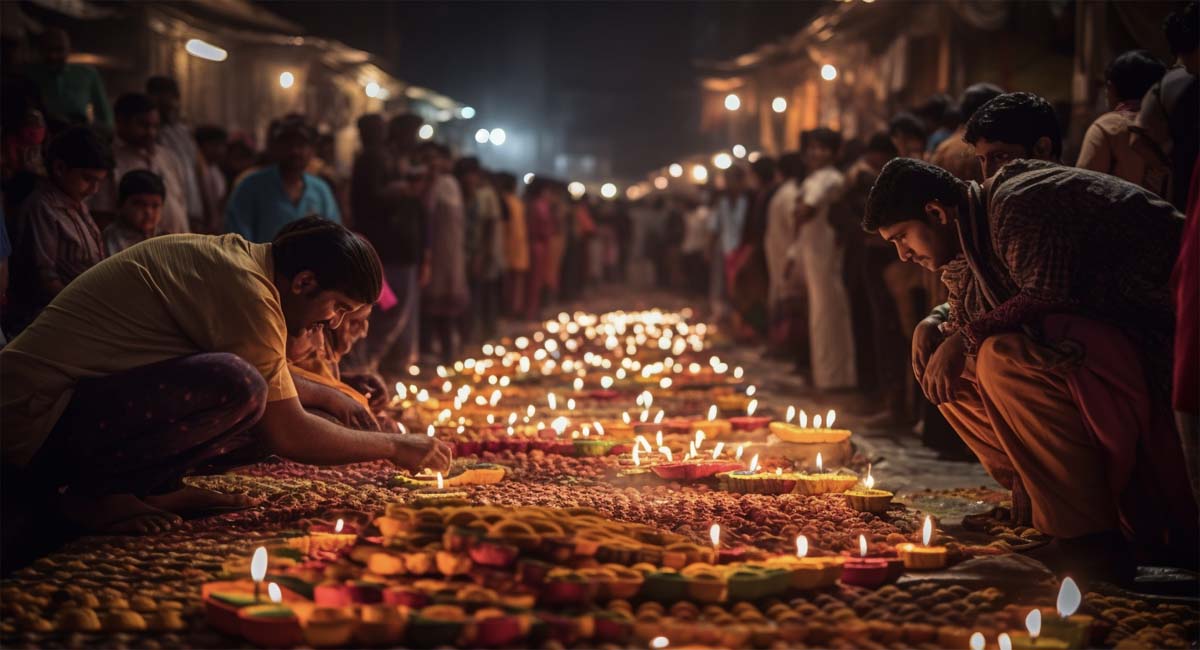We explore the potential advantages of India becoming a Hindu Rashtra. India, a land known for its diverse culture and heritage, has been a secular nation for many decades. However, in recent times, there has been a growing debate about the prospect of India becoming a Hindu Rashtra, where Hinduism would hold a more prominent place in the country’s identity and governance. This discussion has garnered both support and opposition, with passionate arguments. This article will examine the potential benefits of such a transformation, considering the historical, cultural, and socio-political factors that underlie this complex issue.
Historical Perspective
The idea of India as a Hindu Rashtra has deep historical roots dating back centuries. Embracing this heritage can provide a sense of continuity and identity, connecting modern India with its illustrious past. This historical perspective can foster national pride and unity, instilling a shared sense of belonging among its citizens.
Also read – Happy Diwali 2023 Date, Wishes, Quotes, Images, Greetings, WhatsApp & Facebook Status
Cultural Identity
India’s rich and diverse cultural tapestry is one of its most treasured assets. Embracing Hinduism as a central element of the nation’s identity can help preserve and promote its unique cultural heritage. This can lead to increased cultural exchange and cooperation, attracting global attention and admiration.
Political Stability
A Hindu Rashtra can contribute to political stability by aligning the country’s governance more closely with its dominant religious beliefs. This alignment can reduce conflicts arising from religious disparities and provide a more harmonious political environment.

Religious Tourism
India is already a popular destination for religious tourism due to its numerous sacred sites. Becoming a Hindu Rashtra can further enhance its appeal to Hindu pilgrims from around the world, boosting the tourism industry and generating economic benefits.
Economic Growth
Strengthening the ties between Hinduism and India’s identity can attract investments and partnerships from Hindu-majority countries. This, in turn, can stimulate economic growth, creating job opportunities and improving the overall standard of living.
Global Perception
A well-managed transition to a Hindu Rashtra can positively influence how India is perceived globally. It can project an image of stability, cultural vibrancy, and unity, making India a more attractive partner for international collaborations and investments.
Social Cohesion
A shared religious identity can foster social cohesion by promoting tolerance and understanding among different religious communities within India. This can help reduce religious tensions and promote a more harmonious society.
Preservation of Heritage
India boasts a vast cultural and architectural heritage, much of which is tied to Hinduism. Embracing a Hindu Rashtra can lead to increased efforts to preserve and promote this heritage, ensuring that it is passed down to future generations.
Legal Framework
A shift towards a Hindu Rashtra can lead to the development of a legal framework that aligns with Hindu principles and values. This can provide a sense of moral and ethical guidance in the legal system, potentially leading to a fairer and more just society.
International Relations
India’s diplomatic relations with Hindu-majority countries could see significant improvements if it becomes a Hindu Rashtra. Shared religious and cultural ties can pave the way for stronger alliances and collaborations on various fronts.
Why India is called Hindu Rashtra?
India is often referred to as a “Hindu Rashtra” because it has a significant Hindu population and a historical and cultural heritage deeply rooted in Hinduism. Here are some key reasons why India is associated with the term “Hindu Rashtra”:
Historical Roots: Hinduism is one of the world’s oldest religions, with a history dating back thousands of years. It originated in the Indian subcontinent, and its scriptures, rituals, and philosophies have had a profound influence on Indian society and culture.
Majority Hindu Population: India is home to the largest Hindu population in the world. Hindus make up the majority of the country’s population, with approximately 80% of Indians identifying as Hindus according to the last available census data (as of my knowledge cutoff date is September 2021).
Cultural Influence: Hinduism has played a central role in shaping India’s art, architecture, music, dance, literature, and traditions. Many of India’s festivals, such as Diwali, Holi, and Navaratri, are rooted in Hindu religious celebrations.
Historical Governance: India has a long history of Hindu dynasties and empires that have ruled various parts of the subcontinent. These rulers often patronized Hinduism and built grand temples and monuments dedicated to Hindu deities.
Constitutional Recognition: While India is known for its religious diversity and secular constitution, it also recognizes Hinduism as one of its major religions. The Indian Constitution grants religious freedom to all its citizens and acknowledges the rights of religious minorities.
It’s important to note that India is a diverse and pluralistic country with a rich tapestry of religions and cultures. While Hinduism is a significant aspect of Indian identity and history, India also has a substantial population of Muslims, Christians, Sikhs, Buddhists, Jains, and other religious communities. The term “Hindu Rashtra” can be a subject of debate and discussion, as it reflects a particular perspective on India’s identity and character. Different individuals and groups may interpret it differently based on their views and beliefs.
Conclusion
In conclusion, the debate surrounding India becoming a Hindu Rashtra is complex and multifaceted. While there are potential benefits to embracing a Hindu identity, it is crucial to navigate this transformation with sensitivity, inclusivity, and respect for India’s diverse population. The decision, if ever made, should reflect the will of the people and uphold the principles of democracy and secularism that India has cherished for decades. Only through careful deliberation and open dialogue can India make an informed choice about its future identity and reap the benefits of such a transformation.
Frequently Asked Questions
Is India becoming a Hindu Rashtra a certainty?
No, it’s a topic of debate and discussion, and there is no certainty about whether or when it might happen.
What is the opposition’s stance on India becoming a Hindu Rashtra?
Opposition parties and individuals argue that such a move could be divisive and undermine India’s secular principles.
How would religious minorities be affected by this transformation?
The impact on religious minorities would depend on the policies and attitudes of the government and society.
Will India’s constitution need to change for this transformation?
Potentially, there might be amendments required to reflect the new identity, but it would be a complex process.
What are the potential economic benefits of becoming a Hindu Rashtra?
Economic benefits could include increased tourism, foreign investments, and trade partnerships.
Would this change affect India’s relationships with neighboring countries?
It could influence diplomatic relations, but the extent of the impact would vary.
How can cultural heritage be preserved during this transition?
Preserving cultural heritage would require a concerted effort, including conservation projects and awareness campaigns.
Would a Hindu Rashtra be inclusive of all Hindu sects and beliefs?
Inclusivity would be a key challenge, and policies would need to address diversity within Hinduism.
What would be the role of non-Hindu citizens in a Hindu Rashtra?
The role and rights of non-Hindu citizens would depend on the legal and societal framework established.
How can India ensure that this transformation is peaceful and inclusive?
Achieving a peaceful and inclusive transformation would require careful planning, dialogue, and consideration of all stakeholders.

